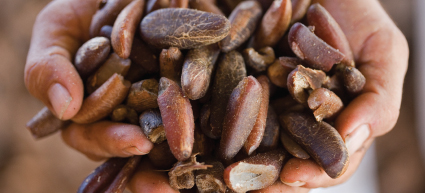Corrupt officials in Guatemala find help from Rubio to weaken anti-corruption commission Cicig
Florida senator Marco Rubio has become an unlikely ally to economic, political and military elites in Guatemala trying to brush off accusations of corruption. These elites are stepping up their war against the UN Commission Against Impunity (Cicig), an international institution tasked with tackling corruption. They have convinced Rubio to put an indefinite hold on U.S. funding for this commission: $6 million to be exact.
Rubio’s hold on funding threatens to undo Cicig’s progress in the struggle for human rights in Guatemala. Established in 2007 the anti-corruption commission has helped remake the criminal justice system by prosecuting human and drug trafficking networks, dishonest judges and military generals who committed crimes during the country’s 40-year civil war. Yet people who speak out for their rights, especially from indigenous communities, still face threat of violence or even death.
Just last week three indigenous rights defenders were killed and another was ordered to remain in prison after already being held for 15 months on baseless charges. Civil society organizations in Guatemala as well as the U.S. are expressing support for land rights defenders and calling for full funding for Cicig.
House Farm Bill fails over SNAP cuts and immigration fight
The rejection of the House Farm Bill on Friday means that proposed cuts to the Supplemental Nutrition Program (SNAP), also known as food stamps, will be dropped in the Senate version of the bill. House Republicans had also proposed extreme work requirements, which Democrats staunchly opposed. A number of activists and nonprofit organizations also opposed these proposed cuts and work requirements. The final vote for the bill was 198 to 213.
Conservative members of the House who are part of the Freedom Caucus also voted no. They wanted to get a vote on an immigration bill focusing on security in exchange for their support, but when they didn’t receive any zero concessions on this, they blocked the passage of the House Farm Bill.
The Senate is also negotiating on the farm bill and is scheduled to finish in June.
Growing mushrooms to resist amid hunger and war
More and more organizations across the Middle East and parts of Africa are growing mushrooms to generate income and to resist systemic injustices. In Palestine a group of friends started their own mushroom farm, Amoro, so they didn’t have to buy Israeli produce. Another nonprofit, Ghiras Al-Nahda, started growing mushrooms for Syrians living under siege. In January 2018 they said they had taught 160 people to grow the high-protein fungi in their own homes.
Further south, notable mushroom operations are picking up steam in Ghana and Zimbabwe. In Zimbabwe, a woman named Chido Govera is training mushroom farmers after learning to grow mushrooms as a means of survival at age seven.







